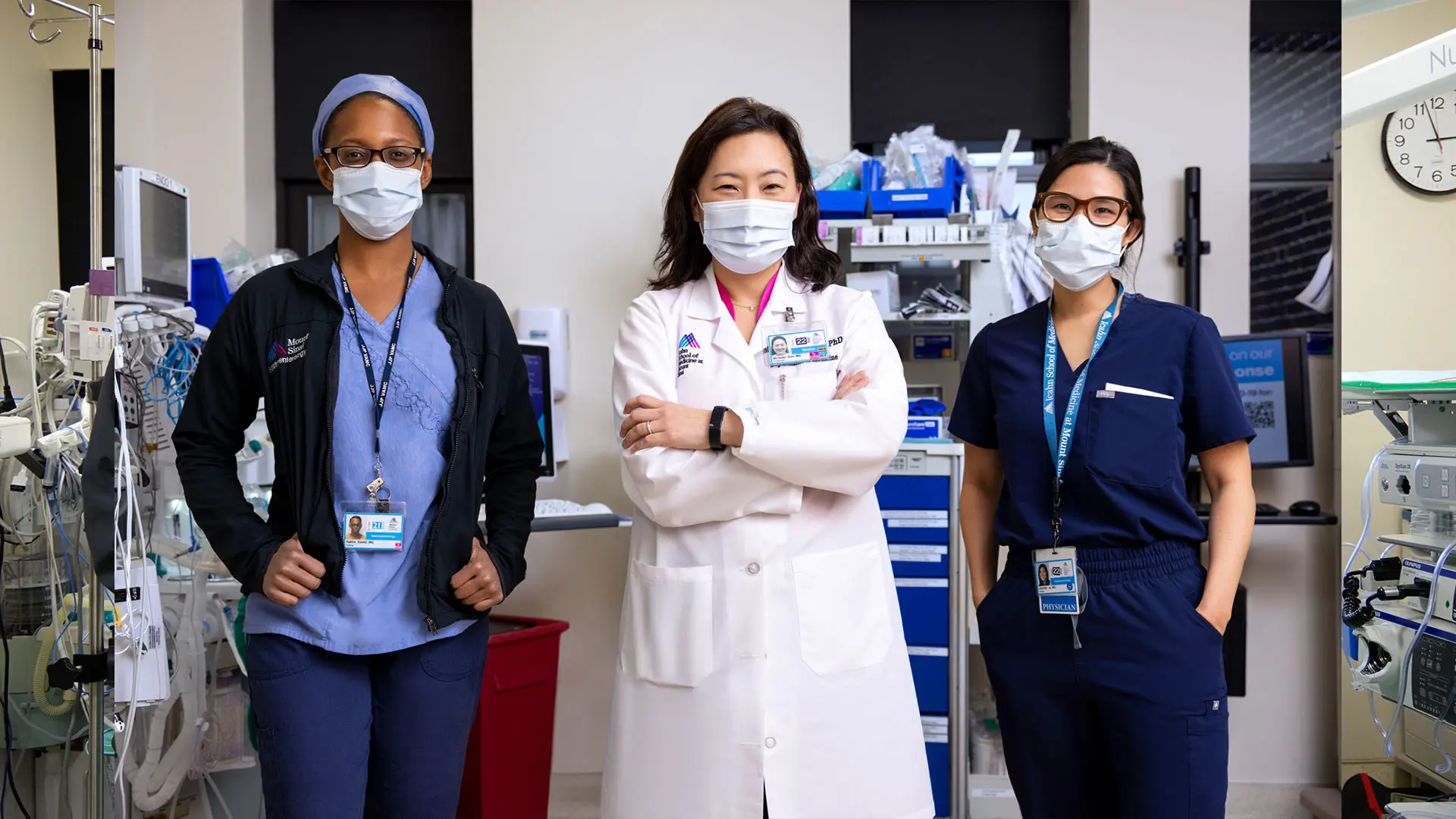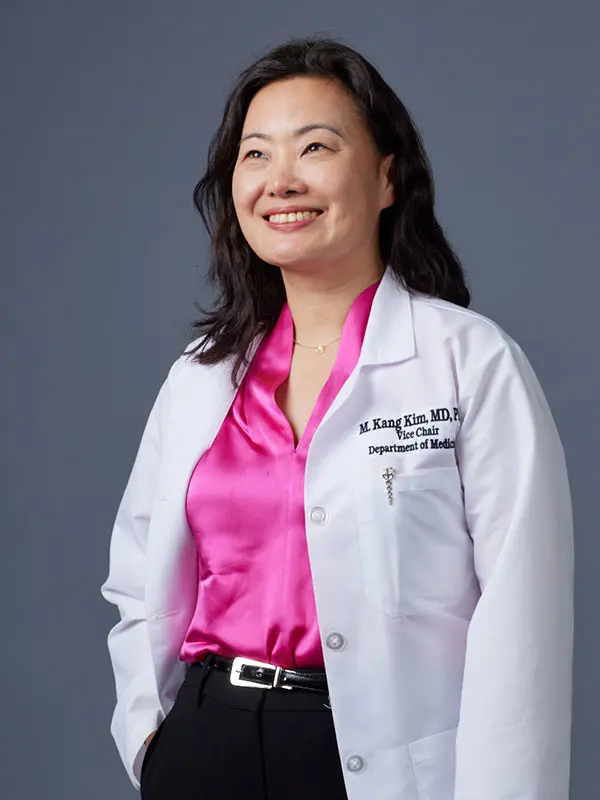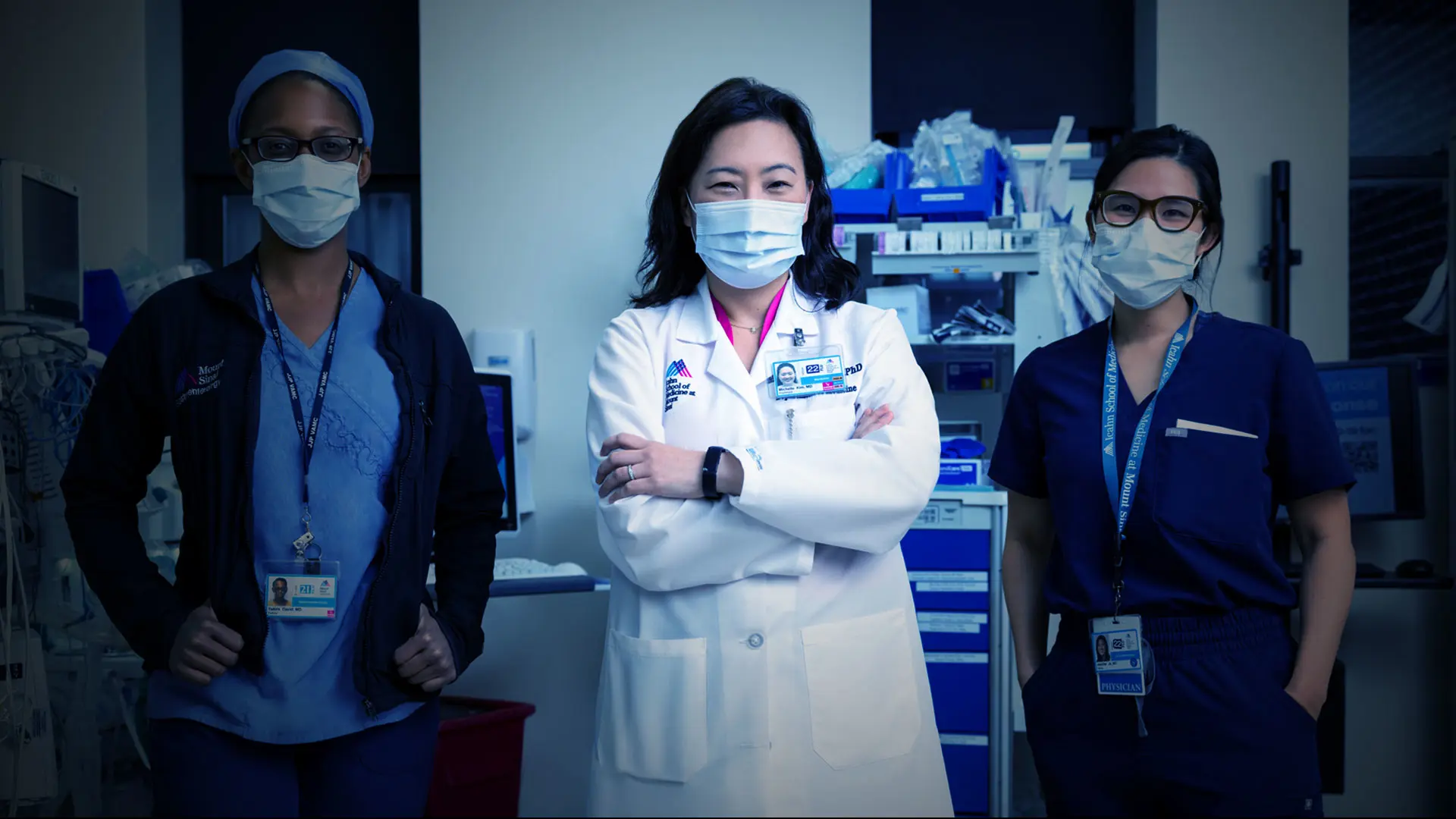While gastroenterology is historically a male-dominated field, the ranks of female professionals are growing. As many as 30 percent of trainees are now women, and in a recent gastroenterology fellowship program at the Icahn School of Medicine at Mount Sinai, all 12 fellows were women.
Still, women face imposing challenges in entering or practicing in a branch of medicine where more than 82 percent of practitioners are male, as two recent studies led by Michelle Kang Kim, MD, PhD, Professor of Medicine (Gastroenterology) at Icahn Mount Sinai, and Vice Chair for Faculty Affairs, make abundantly clear.
Among the inequities cited are persistent pay gaps, overt and unconscious bias that results in fewer professional and research opportunities for women, vulnerabilities during training, and under-representation at major conferences as panelists and keynote speakers. Both papers were published in Gastrointestinal Endoscopy.
“At the same time women have made progress, there is a greater awareness of how much further we have to go to achieve an inclusive workplace,” says Dr. Kim. “Certain kinds of interactions occur that are not appropriate, and certain environments—from the endoscopy suite to the research lab to the interface with industry representatives—exist that are not conducive to everyone succeeding.”
“Certain kinds of interactions occur that are not appropriate, and certain environments ... exist that are not conducive to everyone succeeding.”
- Michelle Kang Kim, MD, PhD
For her part, Dr. Kim was named to her first leadership position—Associate Director of Endoscopy—by another woman within several years of joining Mount Sinai 16 years ago. But that quick ascension highlighted for her the scarcity of other women in leadership roles, prompting her to tackle the sensitive issue of gender dynamics. “My goal was to identify the perceived barriers to women in gastroenterology and suggest ways to move the field in a more equitable and diverse direction,” she explains. “In that way, I hoped to ensure that our trainees and practicing clinicians had the opportunities they needed to succeed.”
In one of her two studies, Dr. Kim distributed web-based questionnaires to fellows and faculty members at 12 academic centers across the country and three large private practice gastroenterology groups. Based on 115 completed surveys from men and women, the researchers reported that half of all women experienced gender bias in the workplace, and one-third believed that the endoscopy suite environment had negatively impacted their career decisions.
In response to these findings, the studies recommended the following changes:
Endoscopy training, in which touch-based instruction usually involves a male trainer and a female trainee, needs to be “navigated thoughtfully.” The studies suggested that this tactile learning method be available to, but not mandatory for, all trainees, and that it should have an orientation for both trainers and trainees that addresses “the unique challenges involved in learning new procedural skills.”
Women should be actively recruited for research and leadership positions, and department leaders should set expectations for equivalent compensation for male and female endoscopists. Specifically, men and women should receive equal National Institutes of Health and private grant funding for equivalent types of research, and young faculty should receive equivalent start-up funding irrespective of gender.
Disparate treatment of male and female gastroenterologists by industry representatives, impacting the ability of women to provide necessary feedback to the industry about the design and purchase of ergonomically safe equipment, needs to be addressed. The studies urged adoption of a “zero-tolerance policy for inappropriate, sexually explicit, or discriminatory behavior,” as well as inclusion of female gastroenterologists on technology review committees and as consultants for partners in industry and medical device companies.
More women should be recruited to organize and participate in gastroenterology conferences, and to serve as both panelists and keynote speakers.
Despite the imposing challenges, Dr. Kim is encouraged by the accelerating pace of change. “I definitely believe we can move the field in a better and more diverse direction,” she says, “but it will require that all of us—women and men, Blacks and whites and Latinx, and those in academia, private practice, and industry—be part of the solution.”

Michelle Kang Kim, MD, PhD, center, with clinical fellows Yakira David, MBBS, left, and Jennifer Jo, MD
Featured

Michelle Kang Kim, MD, PhD
Professor of Medicine (Gastroenterology)
